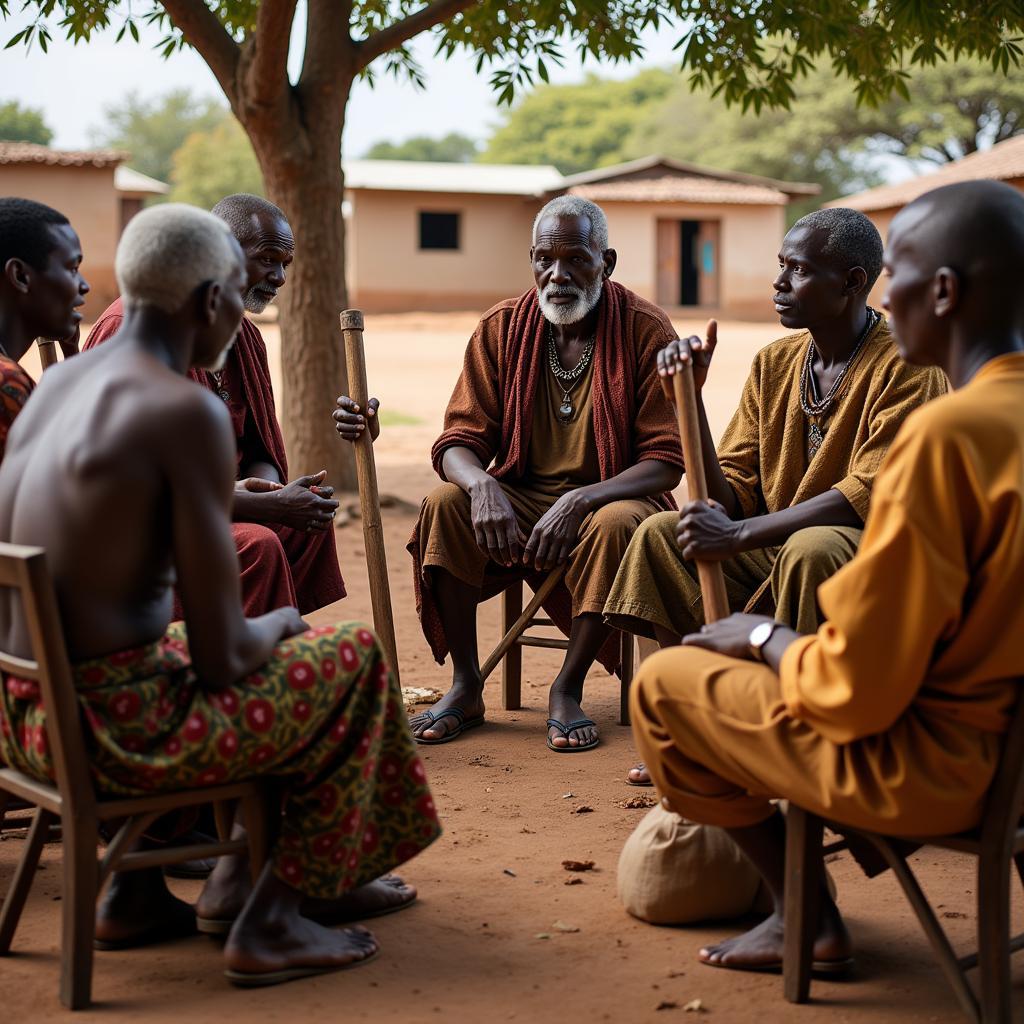The Heart of Ubuntu: Exploring African Communal Living
African Communal Living is a cornerstone of many cultures across the continent, deeply rooted in the spirit of Ubuntu, a philosophy that emphasizes interdependence and shared humanity. It’s not simply about sharing a physical space; it’s a way of life that prioritizes collective responsibility, mutual support, and the well-being of the entire community. This intricate tapestry of interconnectedness shapes everything from daily routines to significant life events.
Understanding the Essence of African Communal Living
African communal living, often misunderstood as a relic of the past, continues to thrive in many forms across the continent. It’s a dynamic system, adapting to modern challenges while retaining its core values. These values are often reflected in traditional practices, social structures, and even architectural designs. Understanding this way of life requires looking beyond the surface and delving into the rich cultural heritage that underpins it.
One of the most striking aspects of African communal living is the emphasis on extended family. Unlike the nuclear family structure common in many Western societies, African families often encompass multiple generations living together or in close proximity. This creates a strong support system, where childcare, eldercare, and other responsibilities are shared among family members. This interconnectedness fosters a deep sense of belonging and security, providing individuals with a network of support they can rely on throughout their lives.
The Role of Shared Resources in African Communal Living
Sharing resources is another defining feature of African communal living. Land, often the most valuable asset, is frequently owned and managed collectively. This communal ownership promotes equitable distribution and ensures that everyone has access to the means of sustenance. This practice also extends to other resources, such as tools, livestock, and even food. This sharing isn’t just about practicality; it reinforces the idea that the community’s well-being takes precedence over individual gain.
How Communal Living Shapes African Culture
African communal living is not just a social structure; it permeates every aspect of culture. Traditional ceremonies, religious practices, and even artistic expressions are often deeply communal. Music, dance, and storytelling are not just forms of entertainment but powerful tools for reinforcing social bonds and transmitting cultural values. african beliefs. These art forms bring people together, creating a shared experience that strengthens the fabric of the community.
Decision-Making in a Communal Setting
Decision-making in African communal societies often involves consensus-building and consultation with elders and community leaders. This collaborative approach ensures that decisions reflect the needs and interests of the entire community rather than just a select few. This process can be time-consuming, but it fosters a sense of shared ownership and responsibility for the outcome.
“Communal living teaches us that true strength lies in unity and cooperation,” says Dr. Abena Otieno, a renowned anthropologist specializing in African cultures. “It’s a powerful reminder that we are all interconnected and that our individual well-being is inextricably linked to the well-being of our community.”
 African Elders Meeting in the Village Square
African Elders Meeting in the Village Square
African Communal Living in the Modern World
While modernization and urbanization present challenges to traditional African communal living, the spirit of Ubuntu remains resilient. Even in urban environments, many Africans maintain strong ties to their extended families and communities. They often form support networks and engage in communal activities that reflect their cultural heritage. african cabaret dance. This adaptability demonstrates the enduring power of communal values in the face of changing times. african farmer icon.
“The spirit of Ubuntu transcends geographical boundaries,” adds Dr. Kwame Asante, a sociologist specializing in African diaspora communities. “It’s a philosophy that can offer valuable lessons to the rest of the world about the importance of community, empathy, and shared humanity.” african girls and malayalam girls xnnx.
In conclusion, African communal living, deeply rooted in the philosophy of Ubuntu, is a way of life that prioritizes interdependence, collective responsibility, and the well-being of the entire community. african audience hearing to fathers speech. While it faces challenges in the modern world, its core values continue to shape African cultures and offer valuable insights into the importance of human connection.
FAQ
- What is the meaning of Ubuntu?
- How does communal living impact childcare in African societies?
- What are the challenges faced by communal living in modern Africa?
- How does decision-making work in a communal setting?
- What are some examples of communal practices in African cultures?
- How does communal living contribute to resource management?
- How does urbanization affect communal living in Africa?
When you need help, please contact us at Phone Number: +255768904061, Email: kaka.mag@gmail.com, or visit us at Mbarali DC Mawindi, Kangaga, Tanzania. We have a 24/7 customer service team.

